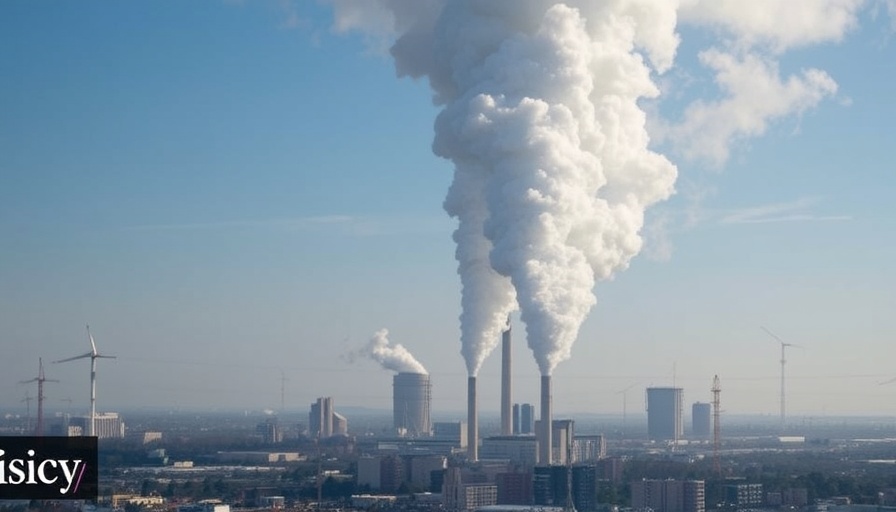
Trump Administration's Rollback of Environmental Protections: A Deep Dive
The recent announcement by the Trump administration to revoke the endangerment finding on greenhouse gases is a monumental shift in U.S. climate policy. By dismantling this critical scientific basis for regulating greenhouse gases, the administration plans to forge a path toward deregulation, one that many experts fear could have dire consequences for public health and welfare. Lee Zeldin, the newly appointed EPA administrator, has called it the 'largest deregulatory action in the history of America,' raising alarm bells nationally and among environmental advocates.
Understanding the Endangerment Finding and Its Significance
Established in 2009 during the Obama administration, the endangerment finding recognized that carbon dioxide and other greenhouse gases are harmful to public health. It provided the legal foundation for regulations aimed at controlling emissions from vehicles, power plants, and industrial sources. With this proposed rollback, Zeldin seeks not only to repeal this finding but also to rescind crucial limits on tailpipe emissions that promote the transition to cleaner automotive technologies, a significant step backwards in the fight against climate change.
Impacts on Public Health and Environmental Safety
Critics, including former EPA leaders, argue that scrapping the endangerment finding will jeopardize the health of millions of Americans. Christine Todd Whitman, who served under President George W. Bush, emphasized that such drastic measures contradict the agency's mission to protect the environment and public health. The current administration's approach raises legitimate concerns about increased pollution, which has direct links to respiratory illnesses and other health issues.
Political Reactions: Who Supports This Deregulatory Agenda?
Supporters of the policy change, primarily conservatives and some congressional Republicans, argue that abolishing the endangerment finding will relieve what they label as economically burdensome regulations. They contend that removing these rules will stimulate economic growth and innovation—yet critics argue that this rationale ignores the long-term costs associated with environmental degradation and its effects on health care and public safety.
Long-Term Implications for the Environment
This regulatory shift is not just a domestic issue but has far-reaching implications globally. Climate change continues to represent one of the most significant challenges faced by humanity. Reducing emissions is crucial to combating global warming, and rolling back regulations may slow down the necessary transition to sustainable practices. Moreover, public perception of the U.S. commitment to addressing climate change could be adversely affected, potentially isolating the country in international climate negotiations.
What This Means for Homebuyers and Investors
For homebuyers, sellers, and property investors, understanding these policy changes is vital. Properties within areas prone to pollution and environmental hazards may see fluctuating values as potential buyers become increasingly discerning about sustainability. The push for green certifications in homes will likely continue to grow, emphasizing energy efficiency and eco-friendliness, even as federal support diminishes.
Rethinking Investment in Sustainable Properties
As the landscape of environmental policy shifts, the discourse surrounding sustainable and eco-friendly home investments remains vibrant. Home investors might find lucrative opportunities in properties that prioritize green technologies. Eco-conscious homebuyers are likely to seek out homes that not only reflect modern designs but also contribute positively to their environment, making green investments a wise choice.
As we navigate these changes, it's crucial to engage with local communities and support sustainable practices in home buying and improvement. Homebuyers should remain informed about policies and their direct impact on property values and environmental health. Let's advocate for sustainable living and innovate our approaches to home environments that balance both beauty and responsibility.
Join the conversation on promoting sustainable practices in your home and community. Share your thoughts on how we can work together to create environments that prioritize health and well-being for everyone.
 Add Row
Add Row  Add
Add 





Write A Comment